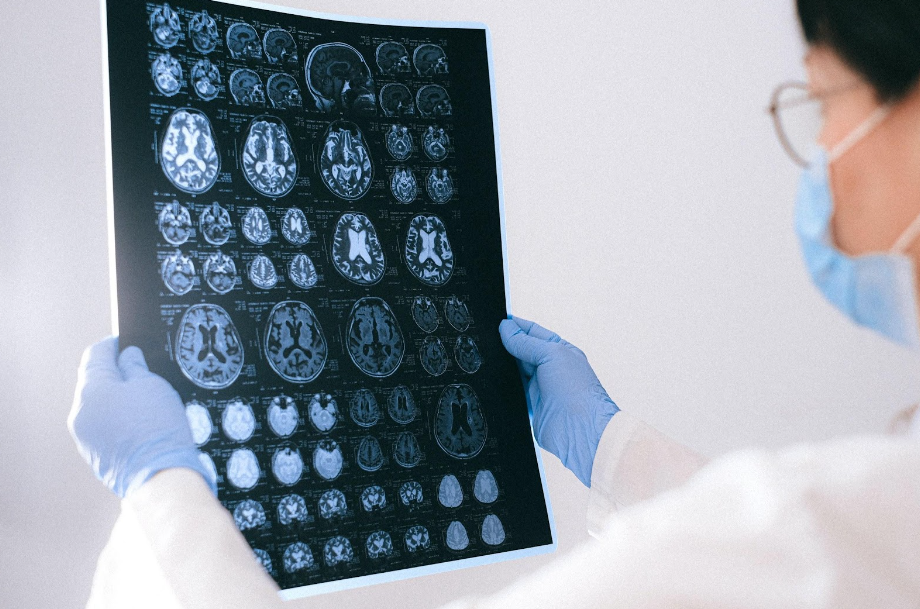What Is the Covid-19 Brain Fog?
What Is the Covid-19 Brain Fog?

The Covid-19 pandemic has affected millions of people worldwide, with symptoms ranging from mild to severe. One symptom that has emerged as a common complaint among those who have contracted the virus is Covid-19 brain fog. It is a state of cognitive impairment characterized by difficulty thinking, memory loss, and a lack of mental clarity. While the cause of Covid-19 brain fog is not entirely clear, it is believed to be related to the virus's impact on the brain. In this article, we will explore the causes, symptoms, and tips to alleviate Covid-19 brain fog.
What is Brain Fog?
Brain fog is a common term used to describe a feeling of mental confusion or lack of clarity. It is often described as feeling "foggy" or "hazy" and can affect a person's ability to concentrate, remember things, and make decisions.
Brain fog is not a medical condition in itself, but rather a symptom that can be caused by a variety of factors, such as stress, lack of sleep, hormonal changes, medication side effects, or underlying medical conditions such as depression, anxiety, or chronic fatigue syndrome.
Some common symptoms of brain fog include difficulty focusing, forgetfulness, feeling mentally drained or exhausted, difficulty processing information, and a general feeling of being "off."
What is Covid-19 Brain Fog?
Covid-19 brain fog is a term used to describe a cognitive symptom that some people experience after being infected with the SARS-CoV-2 virus, which causes Covid-19. It is a type of brain fog that is specifically associated with Covid-19 and is characterized by a feeling of mental confusion or lack of clarity, as well as other cognitive symptoms.
It can persist even after other symptoms of the virus have resolved, and may have a significant impact on a person's quality of life. If you are experiencing Covid-19 brain fog or other cognitive symptoms, it is important to talk to your healthcare provider for guidance on managing your symptoms and monitoring your recovery.
Effects of Covid-19 on the Brain
Since the outbreak of the Covid-19 pandemic, researchers and healthcare professionals have been studying the various effects of the virus on the human body. Let’s discuss some of these effects in further detail.
Cognitive Impairment
One theory is that Covid-19 can cause inflammation in the brain, which can damage the neurons and disrupt communication between brain cells. This can result in cognitive symptoms, such as difficulty concentrating and forgetfulness.
Another theory is that Covid-19 can affect the blood vessels in the brain, causing blood clots or other damage that can impair cognitive function. Covid-19 has been linked to an increased risk of stroke, which can be caused by blood clots in the brain.
Cognitive impairment can have a significant impact on a person's quality of life, and it may affect their ability to work, study, or perform everyday activities. If you are experiencing cognitive impairment or other neurological symptoms after contracting Covid-19, it is important to talk to your healthcare provider for guidance on managing your symptoms and monitoring your recovery.
Encephalitis
Encephalitis is a condition in which the brain becomes inflamed, and it is one of the potential neurological complications of Covid-19. Encephalitis can be caused by a variety of viral, bacterial, and fungal infections, including Covid-19.
The exact mechanism through which Covid-19 causes encephalitis is not yet fully understood, but it is believed that the virus may enter the brain through the olfactory nerve or through the bloodstream, causing inflammation and damage to the brain tissue.
Symptoms of encephalitis can include fever, headache, confusion, seizures, and even coma in severe cases. These symptoms can develop rapidly and may be accompanied by other neurological symptoms, such as muscle weakness, tremors, and difficulty speaking or understanding language.
It is a serious condition that can have long-term effects on a person's neurological function, depending on the severity and location of the inflammation in the brain. It can also increase the risk of other complications, such as seizures, brain damage, and cognitive impairment.
Stroke
Covid-19 has been linked to an increased risk of stroke, which is a serious medical condition that occurs when blood flow to the brain is disrupted, either by a blockage or a burst blood vessel.
It is believed that Covid-19 can cause strokes through a few different mechanisms. Firstly, Covid-19 can cause inflammation and damage to the blood vessels, which can lead to the formation of blood clots. These blood clots can then travel to the brain and cause a stroke.
Secondly, Covid-19 can cause the body's immune system to overreact, which can lead to a condition called cytokine storm. This can cause inflammation throughout the body—including in the blood vessels—which can increase the risk of stroke.
Symptoms of stroke can vary depending on the location and severity of the damage in the brain, but can include sudden onset of weakness or numbness on one side of the body, difficulty speaking or understanding language, loss of vision, and severe headache.
A stroke is a medical emergency and requires immediate treatment to prevent permanent brain damage or even death. Treatment for stroke typically involves the administration of medications to dissolve blood clots, reduce inflammation, and prevent further damage to the brain. Rehabilitation therapy may also be necessary to help restore neurological function after the acute phase of the illness has passed.
Lack of Oxygen
Covid-19 can cause a lack of oxygen to the brain, which can lead to a range of neurological symptoms and complications. This can occur in severe cases of Covid-19, particularly in those who require hospitalization and mechanical ventilation.
The virus can cause pneumonia, which is an infection of the lungs that can cause inflammation and damage to the air sacs where oxygen is exchanged between the lungs and the bloodstream. This can result in low levels of oxygen in the bloodstream, a condition known as hypoxemia.
Hypoxemia can cause a range of neurological symptoms, such as confusion, disorientation, and even coma in severe cases. This is because the brain requires a constant supply of oxygen to function properly, and a lack of oxygen can cause damage to the brain tissue.
In some cases, Covid-19 can also cause acute respiratory distress syndrome (ARDS), which is a severe lung condition that can lead to a lack of oxygen in the bloodstream. ARDS can cause widespread inflammation throughout the body, including in the brain, which can further contribute to neurological complications.
Tips to Clear the Covid-19 Brain Fog
While it can be frustrating and debilitating, there are several tips and strategies that can be used to clear Covid-19 brain fog, some of which are discussed below.
Get Enough Sleep
Getting enough sleep is crucial for cognitive function and can help alleviate brain fog. It is recommended that adults get between 7-9 hours of sleep each night. Establishing a consistent sleep routine and avoiding screens before bedtime can also improve the quality of sleep.
Stay Physically Active
Physical activity has been shown to improve cognitive function and reduce symptoms of brain fog. Engaging in regular exercise can also help reduce stress and anxiety, which can contribute to cognitive impairment.
Engage in Cognitive Activities
Engaging in activities that stimulate the brain, such as puzzles, reading, or learning a new skill, can help improve cognitive function and alleviate brain fog. It is important to challenge the brain regularly to maintain cognitive health.
Eat a Balanced Diet
Eating a balanced diet that is rich in nutrients, such as fruits, vegetables, whole grains, and lean protein, can help improve cognitive function and reduce brain fog. It is also important to limit processed foods, sugar, and unhealthy fats.
Manage Stress Levels
Stress and anxiety can contribute to cognitive impairment and brain fog. It is important to identify sources of stress and develop strategies to manage it, such as mindfulness, meditation, or talking with a therapist.
Stay Hydrated
Dehydration can contribute to cognitive impairment and brain fog. Drinking enough water throughout the day can help improve cognitive function and reduce symptoms of brain fog.
Limit Alcohol and Drug Use
Alcohol and drug use can have negative effects on cognitive function and contribute to brain fog. Limiting or avoiding these substances can help improve cognitive function and reduce symptoms of brain fog.
Prioritize Self-Care
Taking care of oneself, both physically and mentally, can help reduce symptoms of brain fog. Prioritizing self-care, such as getting enough sleep, eating a healthy diet, and engaging in stress-reducing activities, can improve cognitive function and reduce brain fog.
Testing
Cognitive changes, such as brain fog, forgetfulness, and difficulty concentrating, have been reported by many COVID-19 patients. These changes can be subtle and difficult to identify without proper testing. Neuropsychologists use formal cognitive testing to identify any cognitive changes that may be related to COVID-19.
Formal cognitive testing by a neuropsychologist is integral in determining if there are COVID-related cognitive changes. It provides valuable information about a patient's cognitive functioning and helps to guide treatment and management of COVID-related cognitive symptoms.
Conclusion
If you or a loved one is experiencing Covid-19 brain fog, it is essential to seek medical attention promptly. At IGEA Brain Spine & Orthopedic, we specialize in diagnosing and treating neurological conditions, including Covid-19 brain fog. Our team of experts is committed to providing compassionate and individualized care to our patients, using the latest medical technologies and techniques. Don't let Covid-19 brain fog impact your quality of life. Contact us /site/0569d0d5/contact-us?nee=true&ed=true&showOriginal=true&preview=true&dm_try_mode=true&dm_checkSync=1 /site/0569d0d5/contact-us?nee=true&ed=true&showOriginal=true&preview=true&dm_try_mode=true&dm_checkSync=1
https://www.igeaneuro.com/contact-us
to understand how we can help you.







